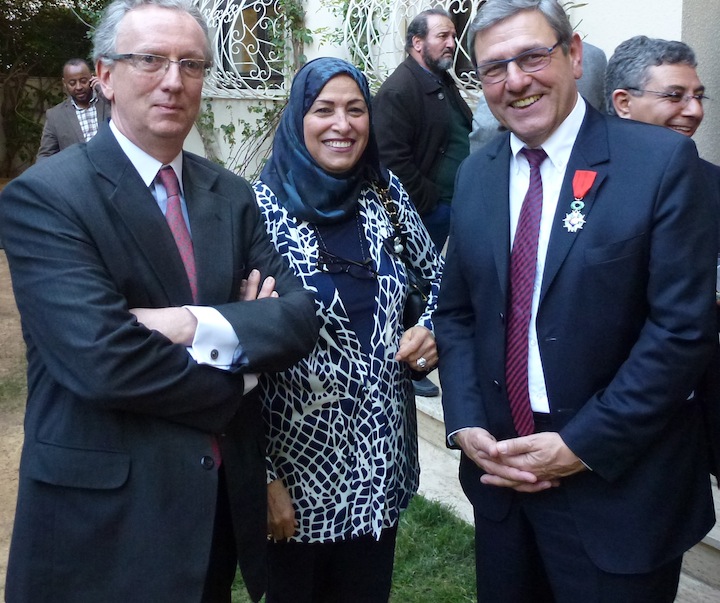By Salaheddin Sharif.
Benghazi, April 2014:
One of the most challenging issues facing the current and future governments . . .[restrict]of Libya is the concept of modern leadership.
In the 17 February Revolution, Libya’s youth began an uprising against the Qaddafi military dictatorship which had ruthlessly ruled the country for more than 40 years. The United Nations effectively supported the Libyan people with NATO’s military intervention which resulted in the collapse of regime, the death of Qaddafi and the start of a new era in Libya.
It is now 2014 and Libya continues to undergo political changes as it attempts to rebuild itself as a democratic state which upholds the ideals of justice and freedom, and a modern constitution. During this crucial time, there is an urgent need to reconstruct all Libyan state sectors, including health, education, a free-market economy and all the infrastructure required to support stability at every level for the entire country.
Unfortunately, over the last three years, all of Libya’s political leaders have failed to take Libya forward. Although they have been elected by the democratic process, they have failed in their duty and responsibility to serve the Libyan people and work for the future of the nation. Instead of implementing policies that would allow progress towards a stable democratic state, they have allowed conditions to worsen, while spending billions of dinars without any noticeable improvement in the country’s facilities or people’s quality of life. Ignorance, backward and outdated thinking, centralised bureaucratic institutions, corruption, a lack of transparency and a lack of understanding of leadership have collectively led to a failure in building the new state.
The concept of leadership requires us to consider its definition and its perceived qualities. We must ask ourselves and reflect: “What makes a strong leader and how will he lead with success?”
Most Libyan people view leadership through theories that depend on innate qualities and personal characteristics possessed by great social, political and military leaders. However, in the current Libyan government, most of the politicians have been elected not because of their strength, skill or merit, but because their tribal affiliation, wealth, adherence to either an old ideological background or loyalty to an political figure opposed to the Qaddafi regime or, alternatively, to their status as a political prisoner, fighter during revolution or reputation as a social activist. They won elections as a result of their dedication to self-serving media propaganda, not because of any great vision or strategic plan they have for Libya.
Furthermore, the prime minster appointed his team based on geographical distribution, tribes and parties as opposed to qualification and experience. This has been a path to failure. Not surprisingly, the Libyan people have become disenchanted and outraged at the lack of progress from within the General National Conference (GNC) and government.
Their poor leadership has now given birth to an explosion of resentment against the GNC. During this pivotal time, instead of inspiring its people, the present political deadlock has created considerable doubt in the minds of Libyans about the merits of democracy and perpetuated the belief in an old fashioned regime led by a single powerful man who can lead our country to the future. This threatens to have a negative impact on democracy and could lead Libya back to dictatorship. Libya is suffering at the hands of a government driven by elitism but which has a severe leadership crisis requiring urgent action.
Despite a revolution, Libya has retained the unworkable institutions, systems and laws of the old regime. These entralised Institutions are bureaucratic, rigid and people-unfriendly. There is much emphasis on procedures and paperwork, which is inefficient in terms of time and money and often results in no decisions being made, or they take an inordinate length of time to happen. In addition, most government institutions are highly corrupt and have a complete lack of transparency.
The constitution is awaited. The Libyan people need to unite behind a clearly defined national vision for that constitution. Other than that, the focus must be on rebuilding government institutions to international standards and implementing a strategy toward progress that acknowledges that it is the Libyan people that are the most precious resource of this nation. In addition, it is essential to establish non-government organisations and a private sector, both of which the government needs to take fully into account when making decisions.
The Libyan government and private sector have to support a system that brings forth fresh, creative, qualified and visionary leaders in all sectors – leaders who believe wholeheartedly in Libya. It will be these visionaries who have the potential to lead our country to a bright future.
Youth are hungry for leadership development and they want to lead themselves and others well as they strive to make a difference.
Salaheddin Sharif, MD, MS, RCEP is chairman of Libyan American Friendship Association and a lecturer at the University of Benghazi
[/restrict]




